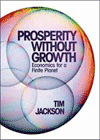Community groups and social networks—conduits for mobilising collective action on climate change locally?
Overall aims
To examine the agency of existing community groups in using their drive and cohesion to encourage adoption of improved home energy management and sustainable lifestyle habits among their members and the broader communities in which they operate.
Context
In recent times there has been a growing recognition among policy-makers of the potential role for community-based action in contributing to the broader aims of energy policy and climate change strategy. In the UK community action is an integral component of the 2009 Low Carbon Transition Plan; and the new coalition Government's 'Big Society' approach also reinforces the centrality of community-level activities. A wide range of community energy initiatives has subsequently been established, highlighting the capacity for local support mechanisms and community energy systems to provide a focal point for collective action towards a more socially and environmentally sustainable future.
A major drawback of these initiatives, however, is that they tend to attract participation from members of the community who are already routinely engaged in pro-environmental habits and behaviours, with a high awareness of environmental responsibility.
This on-going work examines ‘non-environmental’ groups that may have the capacity to reach and influence a broader sphere of the public than energy/environment specific initiatives of recent times have been able to achieve.
Research questions and methods
- What are the chief priorities of a range of established community groups? What attracts participation and which factors have enabled the groups to survive over time?
- What are the drivers and barriers to successful engagement and participation in community group initiatives?
- Is there evidence to suggest that being part of a community-based group/network improves the extent and impact of actions being encouraged?
- What knowledge (among group ‘key informants’) is there of existing community climate change initiatives (e.g. local authority led projects) operating in the immediate vicinity and to what extent are the groups engaged in these projects?
- Have the groups in question ever held events, campaigns or activities on raising awareness of environmental issues and encouraging action?
- To explore possibilities for community groups and social networks to act as conduits for collective action on climate change.
The workshops were split into two ‘halves’. During the first half the focus was on the priorities and aims of the groups, how they operate, attract participation and some of the enabling and restricting factors in relation to the organization of campaigns and events. In the second half attention was turned to the issue of climate change, sustainable living and in particular, the potential role for the groups to encourage understanding on environmental responsibility and facilitating practical action to that end.
Results
We posit that the potential for more effective ‘bottom-up’ engagement on climate change and sustainable living might be given fresh impetus by these types of established community groups and their networks. The results confirm some core principles of social identity theory – particularly in relation to the idea that community groups themselves contribute to their members’ sense of self in addition to being external characteristics of the world that people encounter. There is a substantial willingness and scope for developing strategies and initiatives to combat climate change and encourage sustainable living among the participating groups. However, a key challenge lies in the delivery of such programmes which necessarily will require a range of approaches that are most suitable for the individual group (and associated network) in question. This was found to vary considerably from group to group. The research findings will guide the development of strategies to strengthen the drive towards sustainable consumption and behaviour at the local level.
Outputs
Peters, M2011. The promise and limitations of community groups in promoting sustainable consumption and behaviour at local level, 6th International Conference on Interdisciplinary Social Sciences, 11-13 July 2011.
Peters, M, P Sinclair and S Fudge 2012. The potential for community groups to promote sustainable living, International Journal of Interdisciplinary Social Sciences, accepted for publication.
Fudge, S and M Peters 2011. Broader behavioural focus needed to mitigate climate change, Science for Environment Policy: European Commission DG Environment News Alert Service, edited by SCU, The University of the West of England, Bristol.





